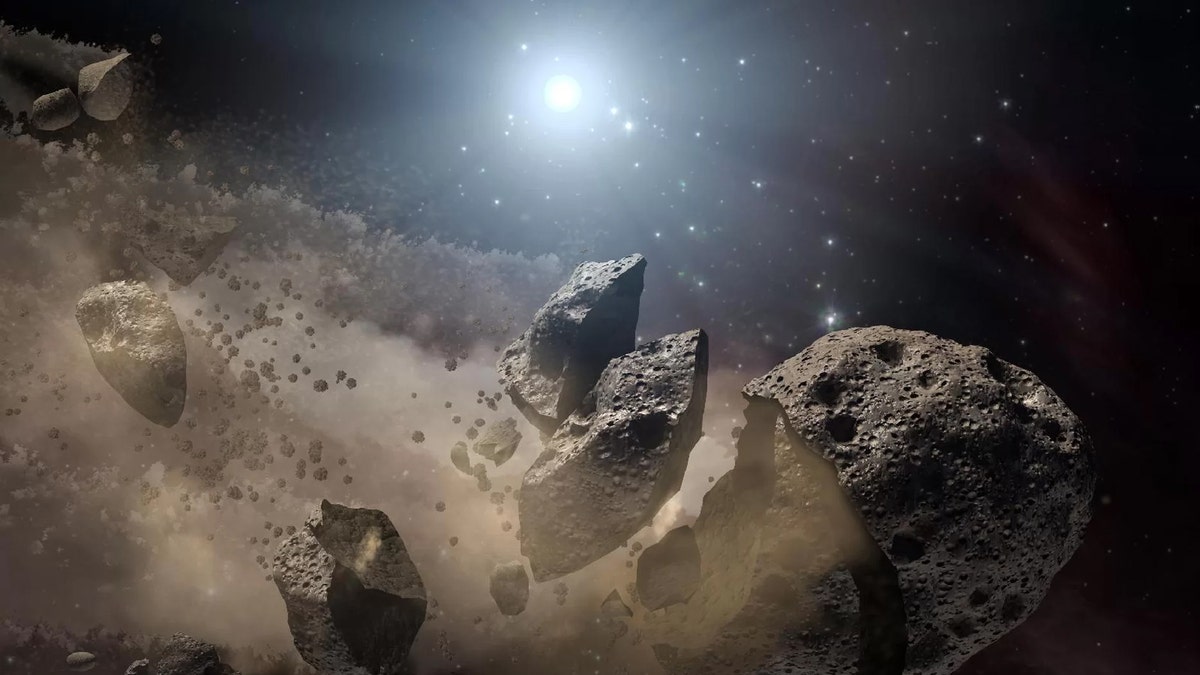
Researchers have found that a family of asteroids that dates back to the solar system's early days. Here is an artist's concept of a broken-up asteroid. The leftover building blocks of the solar system, called planetesimals, were similarly fragmented, and they drifted apart over time. (Credit: NASA/JPL-Caltech)
Scientists have discovered asteroids that are relics from the solar system's early history.
According to findings published in the journal Science, researchers have uncovered a previously unknown family of darkly colored asteroids, which may be the oldest objects in the known universe.
"We discovered a [4 billion year-old] asteroid family extending across the entire inner part of the Main Belt, whose members include most dark asteroids previously unlinked to families," the researchers wrote in a study synopsis. "This allows us to identify some original planetesimals, which are all larger than 35 km (21.8 miles), supporting the view of asteroids being born big."
ASTEROIDS MIGHT START AS GIANT MUD BALLS
The universe itself is thought to be around 4.6 billion years old.
The study's lead author is Marco Delbo, astrophysicist at the University of the Côte d'Azur in Nice, France.
By discovering these ancient asteroids, the researchers could gain insights into how the space rocks, as well as planets, are formed, according to an interview with Space.com.
The space rocks average 7.15 miles in diameter, with the family containing 108 members in total. The largest is asteroid 282 Clorinde, about 26.1 miles wide, or slightly less than the distance of the New York City marathon.
Delbo added that the findings came as part of the researchers' studies into the inner part of the main asteroid belt.
NASA SEARCHES FOR PLANETARY PROTECTION OFFICER TO SAVE EARTH FROM ALIEN CONTAMINATION
"Most of the asteroids and meteorites that hit the Earth come from this source region," Delbo added in the Space.com interview. "Also, we and many other colleagues wanted to trace the asteroid Bennu, the target of NASA's OSIRIS-REx sample return space mission, back to its origin in the main belt and possibly to a parent asteroid."








































